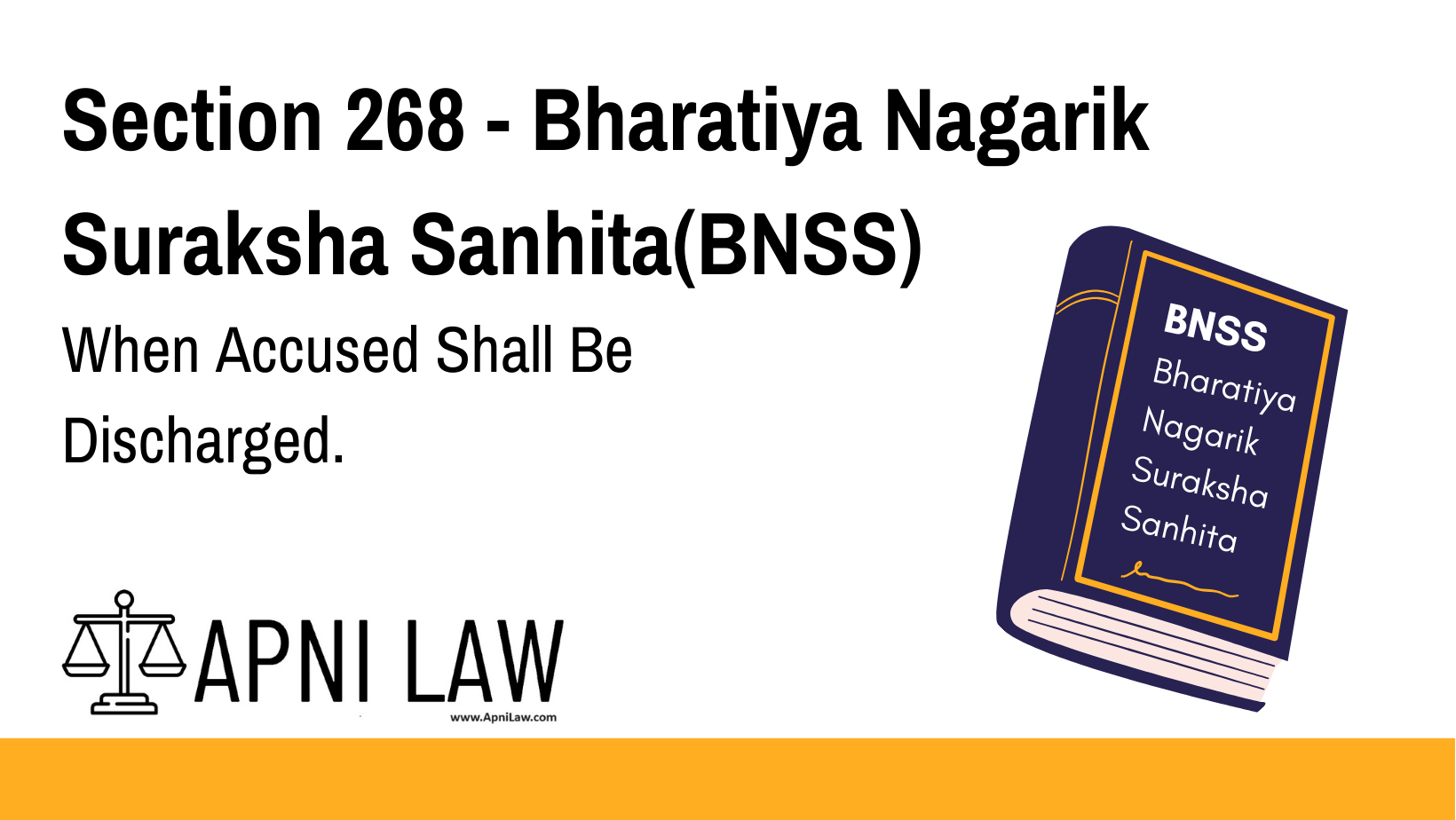Code:
(1) If, upon taking all the evidence referred to in section 267, the Magistrate considers, for reasons to be recorded, that no case against the accused has been made out which, if unrebutted, would warrant his conviction, the Magistrate shall discharge him.
(2) Nothing in this section shall be deemed to prevent a Magistrate from discharging the accused at any previous stage of the case if, for reasons to be recorded by such Magistrate, he considers the charge to be groundless.
Explanation:
This section deals with the power of a Magistrate to discharge an accused person at various stages of a criminal trial. It provides for two distinct scenarios:
- Section 268 (1): Discharge after considering evidence: This section states that if, after considering all the evidence presented under Section 267, the Magistrate finds that no case has been established against the accused that would warrant a conviction, he shall discharge the accused. The Magistrate must record the reasons for this decision.
- Section 268 (2): Discharge at any previous stage: This section provides the Magistrate with the power to discharge the accused at any earlier stage of the case if he deems the charge to be groundless. The Magistrate must record the reasons for this decision as well.
Illustration:
Imagine a situation where a person is accused of theft. During the trial, the prosecution presents evidence, but the Magistrate finds it insufficient to establish a strong case against the accused. In this case, the Magistrate can apply Section 268 (1) and discharge the accused, recording the reasons for his decision. This indicates that the Magistrate believes the evidence is not strong enough to warrant a conviction, even if left unrebutted by the accused.
Common Questions and Answers:
Q: What does “groundless” mean in Section 268 (2)?
A: It means the Magistrate believes the charges against the accused lack any reasonable basis or are not supported by evidence.
Q: What are the implications of a discharge under Section 268?
A: A discharge under Section 268 means the accused is released from the case and there will be no further proceedings against him.
Q: Can the prosecution appeal against a discharge order under Section 268?
A: Yes, the prosecution can appeal against a discharge order under Section 268.








